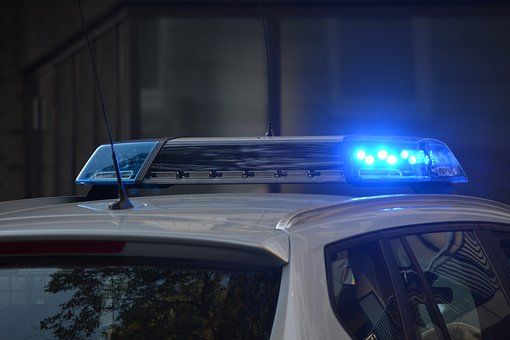I’ve Been Pulled Over and Been Drinking … Now What?

Useful Information About DWI Investigations
For many people there is no scarier situation than to be pulled over by the police after having some drinks. Whether its one or two drinks at a work happy hour, three or four drinks at a Christmas Party, or several drinks after a long night, fear and anxiety are unavoidable when dealing with the police. The first thing you must think about is context. Police already expect people to be drinking substantially more than usual this time of year because of the holidays. Starting with the night before Thanksgiving and going through New Years, the consumption of alcohol increases significantly this time of year. Also, the later into the night you are pulled over, the more likely a police officer will think you have been drinking, and that you have had too much to drink.
Why Were You Pulled Over?
Second, it is important to be aware of the reason you were probably pulled over by the police. If you were pulled over for expired plates or speeding then the police officer may not think you have been drinking. If you were pulled over for leaving your lane or not obeying street signs, then there is a higher likelihood the police officer already believes you are intoxicated. This is very important because people are very accustomed to texting and driving, playing with the radio, and reaching for something that has fallen, which can all cause you to leave your lane. Even if you left your lane for one of these reasons the police will think it is because you are drunk.
“Have You Been Drinking This Evening?”
Once you are pulled over and the police officer arrives at your car to speak with you he is going to get around to asking the million-dollar question, “have you been drinking this evening?” Here is what I can tell you about what a police officer thinks about your possible answer to this question: if you tell him yes then he will believe you, but when you tell him how much you have had he will not believe you. If you say you have been drinking then you will be asked to step out of the car for further investigation, regardless of how little you say you drank. At this point the officer believes you are intoxicated unless you prove to him that you are not. If you say that you have not had anything to drink, now it puts pressure on the police officer to determine if he is going to ask you to step out of the car and begin a DWI investigation. Once you have been pulled over after having anything to drink, the number one way to not get arrested is if you are never asked to step out of your vehicle.
Field Sobriety Tests
The most important thing to know about field sobriety tests is they are more complicated than they appear. You may be able to walk a straight line and stand on one leg, but can you follow each and every instruction from the police officer while doing so? The officer is looking at whether you can balance, but he is also very interested in your ability to follow all of his instructions. The field tests are very technical, and if not performed specifically as instructed then you will be deemed to have failed the tests even if your balance was perfect. It surprises many people to know that you do not have to do the field sobriety tests. They are voluntary tests, regardless of how the police officer makes it sounds. That being said, if you refuse the field tests you should expect to be arrested for DWI. If you are drunk and know you will not do well on the tests, then it is a good idea to refuse the tests and limit the amount of evidence the police officer has against you. There are three main field sobriety tests that are administered during DWI investigations: the Horizontal Gaze Nystagmus (HGN) Test, the Walk and Turn Test, and the One Leg Stand Test. The HGN test checks for involuntary jerking of your eyeballs to determine if you are intoxicated. The Walk and Turn and One Leg Stand test are more traditional balance and follow instruction tests.
Breath Test or Refusal
After the field sobriety tests, if you have not done well the police officer will place you under arrest. Either at that time or back at the station the officer will ask if you will submit to a breath test. He will explain that if you refuse your license will be automatically suspended for one year, which is simply not true. There are no automatics when it comes to the law, there is review for nearly everything. Breath test refusals are no exception. Whether you take a breath test and blow over the legal limit, or if you refuse the breath test you have the right to challenge the resulting driver’s license suspension. In many first offense cases, it is in your best interest to refuse because you may have more options available to you. If you have multiple DWI’s than it may be in your best interest to refuse because there is no evidence of your specific blood alcohol content. Although a police officer can request a search warrant and draw your blood, this does not happen often, and almost never for a first time offender.
St. Louis DWI Lawyer Jason Korner
If you or a loved one gets pulled over for a DWI this holiday season, please contact Jason Korner so he can answer all of your questions and explain the upcoming court process. You can speak with Mr. Korner by calling 314-409-2659 or by clicking here and filling out the contact form.

